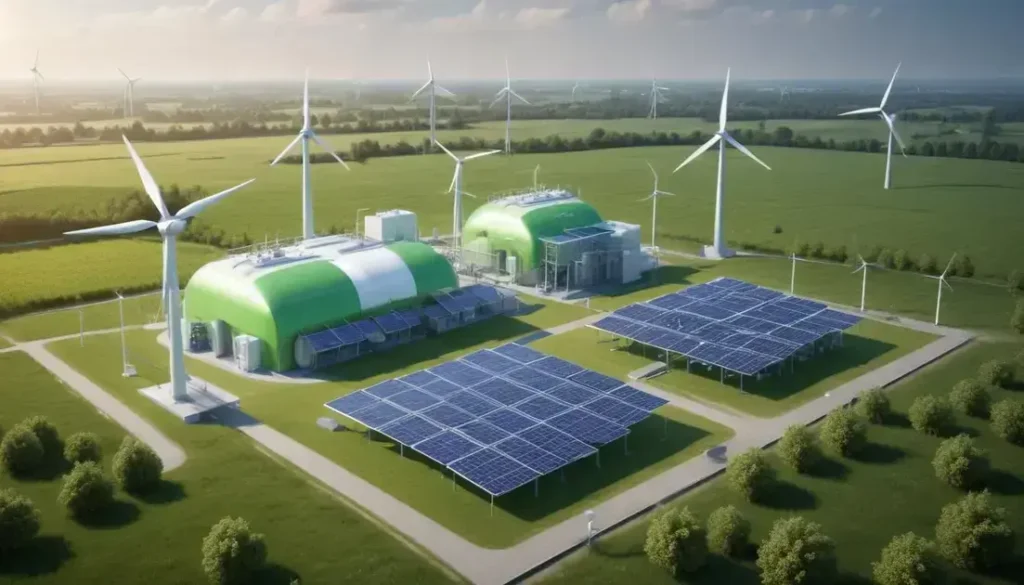Volkswagen’s green bond is a strategic financial tool to raise funds for sustainable projects in the electric vehicle sector, significantly impacting Australian businesses by increasing demand for eco-friendly components and infrastructure.
Volkswagen’s new green bond initiative is setting a precedent in sustainable finance. What does this mean for the Australian market?
Introduction to Volkswagen’s green bond
Volkswagen’s recent launch of a green bond marks a significant milestone in sustainable finance. This innovative financial instrument aims to raise funds specifically for environmentally friendly projects, particularly in the electric vehicle sector. By investing in green bonds, Volkswagen is not only showcasing its commitment to sustainability but also responding to rising consumer demand for cleaner transportation options.
As the automotive industry pivots towards sustainable practices, this bond issuance is particularly timely. Investors are increasingly seeking opportunities that align with their values, and green bonds provide a pathway for funding projects that contribute to positive environmental impacts. This initiative by Volkswagen reflects the broader trend of major corporations embracing green financing.
For Australian businesses, the implications are noteworthy. As Volkswagen seeks to expand its electric vehicle offerings, local suppliers and manufacturers may find new opportunities emerging. This shift towards electric mobility could create a ripple effect throughout the supply chain, encouraging investments in sustainable technologies and practices across the nation. As Australia positions itself as a leader in environmental responsibility, initiatives like Volkswagen’s green bond will play a crucial role in shaping the future of the automotive market.
Investor response and interest
The launch of Volkswagen’s green bond has generated considerable interest among investors, signalling a strong shift towards sustainable investing. As market trends evolve, more investors are recognising the importance of eco-friendly initiatives. This is evident in the positive reception Volkswagen has received from institutions eager to support green projects.
Investor appetite for green bonds continues to grow, driven by a combination of regulatory support and consumer demand for sustainable practices. Funds raised from these bonds are earmarked for environmentally beneficial projects, particularly in the electric vehicle sector. This specific focus attracts a diverse pool of investors, including those looking at long-term sustainability.
Analysts suggest that the performance of Volkswagen’s green bond could set a new benchmark in the industry, potentially influencing other companies to pursue similar strategies. As investors weigh the financial and environmental impacts of their choices, the emphasis on transparent funding allocations in green bonds adds additional appeal. This increased scrutiny reinforces the notion that such investments not only yield financial returns but also contribute positively to the planet.
Ultimately, Volkswagen’s approach reflects a broader trend where sustainability is at the forefront of investor priorities, fostering a more resilient and eco-conscious market in Australia and beyond.
Use of funds for electric vehicle financing
The funds raised from Volkswagen’s green bond are strategically allocated towards enhancing their electric vehicle (EV) offerings. This includes financing the development of new models that utilise cutting-edge technology and sustainable materials. By directing investments into electric vehicle production, Volkswagen aims to solidify its position in the rapidly evolving automotive landscape.
Specifically, a significant portion of the capital will support research and development in battery technology. Advancements in battery efficiency are crucial for extending the range and lowering the costs of electric vehicles, making them more accessible to consumers. These improvements not only benefit Volkswagen but also contribute to broader sustainability goals within the automotive industry.
Furthermore, the funding is intended for establishing new charging infrastructure. Expanding the availability of charging stations is essential for encouraging the adoption of EVs among consumers. As the infrastructure improves, it reduces range anxiety, thus making electric cars more appealing to a wider audience.
By investing in both advanced vehicle technology and necessary infrastructure, Volkswagen’s green bond funding aims to provide a comprehensive solution to the challenges facing electric mobility. This strategic focus ensures that Volkswagen remains competitive while also supporting Australia’s transition to a cleaner, more sustainable transportation future.
Implications for Australian businesses
The launch of Volkswagen’s green bond has significant implications for Australian businesses, particularly those involved in the automotive and clean energy sectors. As Volkswagen ramps up its investment in electric vehicle technology, local suppliers stand to benefit from increased demand for components and services suited to this evolving market.
Moreover, businesses engaged in sustainable practices may find new opportunities for collaboration. With the focus on reducing emissions and promoting environmentally friendly products, there are potential partnerships to explore within the supply chain. Australian companies that align their operations with sustainability goals can leverage this trend to attract investment and enhance their brand reputation.
Additionally, the expansion of electric vehicle infrastructure driven by Volkswagen’s funding will create a ripple effect. As charging stations become more prevalent, this infrastructure will encourage consumer adoption of electric vehicles, subsequently increasing demand for local businesses involved in their manufacture and maintenance. This may also inspire other industries to adopt similar practices, fostering a broader movement toward sustainability.
Investors are likely to take notice of how Volkswagen’s green bond influences the automotive industry landscape in Australia. Enhanced visibility for eco-friendly initiatives can ensure that local companies remain competitive and relevant in this shifting market, ultimately contributing to a more sustainable future for Australia.
Future of green finance in Australia
The future of green finance in Australia appears promising, especially in light of initiatives like Volkswagen’s green bond. As Australia commits to reducing its carbon footprint, the financial sector is increasingly supporting sustainable projects that align with these environmental goals. This shift is evident in the growing interest from investors specifically looking for eco-friendly opportunities.
Australia’s transition to a low-carbon economy is spurring innovation in financial products tailored for sustainability. Green bonds are expected to gain traction as more businesses and governments seek to fund environmentally beneficial projects. This trend not only attracts capital but also enhances the country’s reputation as a leader in sustainable finance.
Another factor influencing the future of green finance is the demand for transparency. Investors are becoming more discerning, looking for detailed information on how funds are allocated and the environmental impact of projects. This necessity for accountability is pushing businesses to adopt more robust reporting frameworks.
The collaboration between governments, financial institutions, and corporations will be essential in driving forward green finance initiatives. By fostering partnerships, Australia can create an ecosystem that supports sustainable development, ultimately paving the way for a resilient and environmentally friendly economy.
Wrapping Up: The Future of Sustainable Investment
The journey towards a greener future is well underway in Australia, driven by initiatives like Volkswagen’s green bond. This shift towards sustainable finance opens up new opportunities for businesses and investors alike. By prioritising eco-friendly practices, companies can not only enhance their market position but also contribute to a healthier planet.
Australia’s focus on sustainability is reshaping the financial landscape. Green bonds and similar investments are becoming essential tools for funding innovative projects that benefit the environment. As both consumers and investors demand more transparency, businesses must adapt and align with these values.
Through collaboration across sectors, Australia can build a robust system that supports long-term growth while addressing climate change. By embracing green finance, we pave the way for a sustainable economy that benefits everyone. It’s time to take action and invest in our future.
Frequently Asked Questions
What are green bonds and how do they work?
Green bonds are financial instruments specifically designed to raise funds for projects that have positive environmental impacts. Investors buy these bonds, and the proceeds are used to finance sustainable initiatives.
How will Volkswagen’s green bond impact Australian businesses?
Volkswagen’s green bond is expected to create opportunities for Australian suppliers and manufacturers by increasing demand for components and services related to electric vehicles.
What is the significance of sustainable finance in Australia?
Sustainable finance is crucial for transitioning to a low-carbon economy. It helps fund projects that promote environmental responsibility and encourages businesses to adopt eco-friendly practices.
How can businesses benefit from investing in sustainability?
Investing in sustainability can enhance a business’s reputation, attract eco-conscious consumers, and open up new markets through partnerships and innovations.
What role does transparency play in green financing?
Transparency is vital as it builds trust with investors and consumers. It ensures that funds are allocated appropriately and allows stakeholders to understand the environmental impacts of projects.
What does the future hold for green finance in Australia?
The future of green finance in Australia looks promising, with increasing investment in sustainable projects and a growing demand for eco-friendly solutions from consumers and investors.


